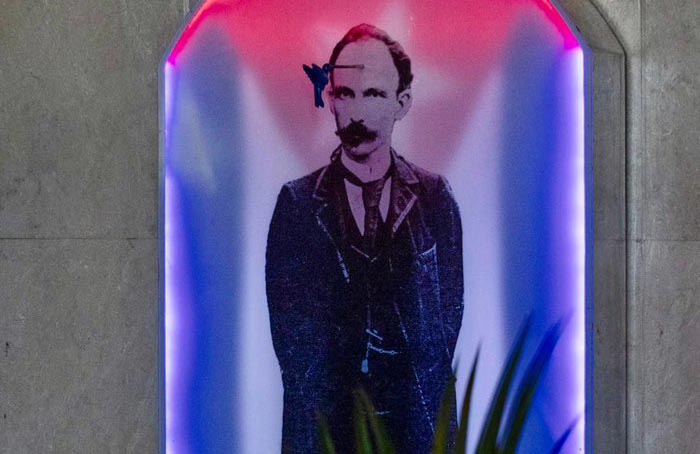
Havana, Jan 28. - Every year the flame of admiration and respect for the Apostle of our independence grows, which is also a flame of admiration and respect for our deep anti-imperialism, said today Miguel Díaz-Canel, First Secretary of the Central Committee of the Communist Party of Cuba and President of the Republic, on the occasion of the 172nd birth of the National Hero José Martí.
Martí lives in all those who do not let themselves be dazzled or intimidated by "the scrambled and brutal North that despises us," the president said on his X-edit account.
Cada año crece la llama de admiración y respeto al Apóstol de nuestra independencia, que lo es también de nuestro profundo antimperialismo. #MartíVive en todos los que no se dejan deslumbrar ni amedrentar por "el Norte revuelto y brutal que nos desprecia”. pic.twitter.com/wHMmo1qdRi
— Miguel Díaz-Canel Bermúdez (@DiazCanelB) January 28, 2025
Through the same social network, Manuel Marrero Cruz, Prime Minister of Cuba, highlighted the Apostle's legacy as a guide to the Revolution and an example of the new generations.
The tribute of our people, on the 172nd anniversary of his birth, to José Martí, the National Hero of Cuba, the intellectual author of the Moncada, commented.
Bruno Rodríguez Parrilla, Minister of Foreign Affairs of Cuba, recalled the fruitful and sacrificed work of José Martí on the anniversary of his birth.
His thoughts are the basis of the humanist, patriotic, anti-imperialist and Latin American and Caribbean work of the Cuban Revolution, the Cuban Foreign Minister in X said.
Recordamos la fecunda y sacrificada labor de José Martí, Héroe Nacional de Cuba, en el 172 aniversario de su natalicio.
— Bruno Rodríguez P (@BrunoRguezP) January 28, 2025
Su pensamiento es la base de la obra humanista, patriótica, antimperialista y latinoamericana y caribeña de la Revolución Cubana.#MartíVive pic.twitter.com/s2R5v7T6cH
José Julián Martí Pérez (1853-1895) is considered a Cuban of universal projection that exceeded the borders of the time when he lived to become the greatest Hispanic American political thinker of the nineteenth century.
Born on January 28, 1853, at Paula Street No. 41oto Leonor Pérez, 314, was baptized on February 12, in the Church of the Holy Guardian Angel of Havana.
In 1880 he arrived in New York, where he was appointed a member of the Cuban Revolutionary Committee and during 1882 he took care to reorganize the revolutionaries.
Two years later he met with Máximo Gómez and Antonio Maceo and began collaborating on an insurrectionary plan designed and directed by them.
In January 1892 he drafted the Bases and Statutes of the Cuban Revolutionary Party and on 8 April of that same year he was elected delegate of that organization.
He founded the newspaper Patria, and in 1894 led a group of armed revolutionaries who intended to invade Cuba, an action that was intercepted in Florida, having to return.
On March 25, 1895, he launched in Santo Domingo the memorable Manifesto of Montecristi and on April 11 of that same year, he landed with Máximo Gómez and four other patriots in Playitas, province of Oriente.
He received the degrees of Major General of the Liberating Army on April 15 and in May wrote to Manuel Mercado a letter that is considered his political will.
On May 14, 1895, he signed the Circular to the Chiefs and Officers of the Liberating Army, the last of the organizational documents of the war, which he also prepared with Gómez.
Martí is considered a brilliant journalist, essayist, poet, diplomat at the service of several countries, professor of English language, French, Italian and German literature and History of Philosophy, polyglot, art and literature critic, translator and renewer of the language.
Precursor of the literary movement called modernism, among its main works are: Ismaelillo (1882), Free Verses (1882), Simple Verses (1891) and Flowers of Banishment (1878-1895). (Text and photo: ACN)